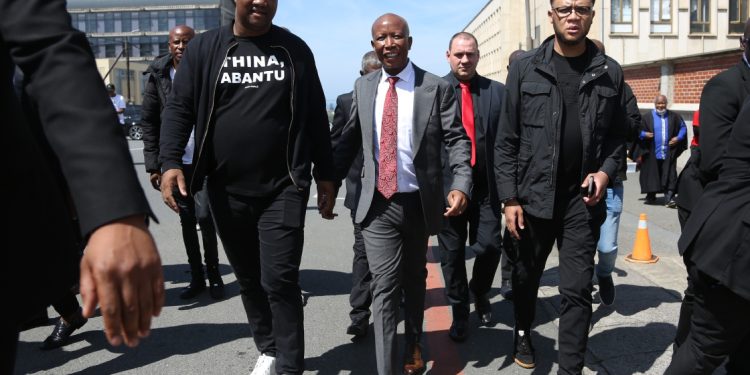The Economic Freedom Fighters (EFF) leader, Julius Malema, has been found guilty of discharging a firearm during a rally in the Eastern Cape, raising the prospect that a custodial sentence could cost him his parliamentary seat.
Legal experts have confirmed that, under South African law, any Member of Parliament sentenced to over a year in prison without the option of a fine automatically loses their position in the National Assembly. This provision puts Malema’s political future on precarious footing, pending the sentencing phase.
The incident, which took place at a high-profile rally, saw Malema allegedly fire a rifle in public, prompting immediate condemnation from political rivals and calls for strict legal accountability. The conviction marks a rare legal setback for the firebrand politician, known for his outspoken and often controversial approach to politics.
EFF spokespersons have yet to indicate whether the party will appeal the conviction or how it plans to navigate a potential leadership vacuum if Malema is removed from Parliament. Analysts suggest that the EFF could face significant strategic disruption should their leader be incarcerated, especially with upcoming elections on the horizon.
Legal analyst Thabo Nkosi explained, “South African parliamentary law is very clear. A sentence exceeding 12 months without the option of a fine triggers automatic disqualification from the National Assembly. Appeals could delay the process, but the risk is very real.”
Malema’s supporters, however, have rallied behind him on social media, arguing that the sentencing should consider the political context and the circumstances of the incident. Critics, meanwhile, insist that the rule of law must be applied evenly, regardless of political standing.
The sentencing hearing is expected in the coming weeks, with the entire country watching closely. Should the court impose a custodial sentence exceeding one year, the EFF will be forced to confront the immediate challenge of leadership succession and parliamentary representation.
Malema’s case underscores a critical intersection of law and politics in South Africa, raising broader questions about accountability for elected officials and the implications of criminal convictions on democratic institutions.






















